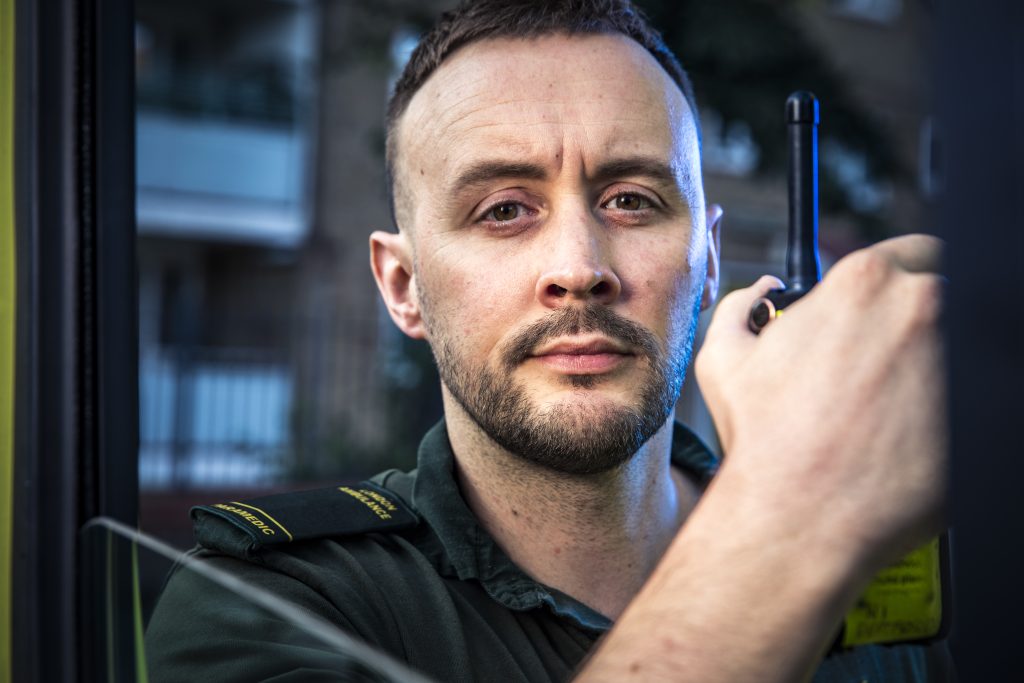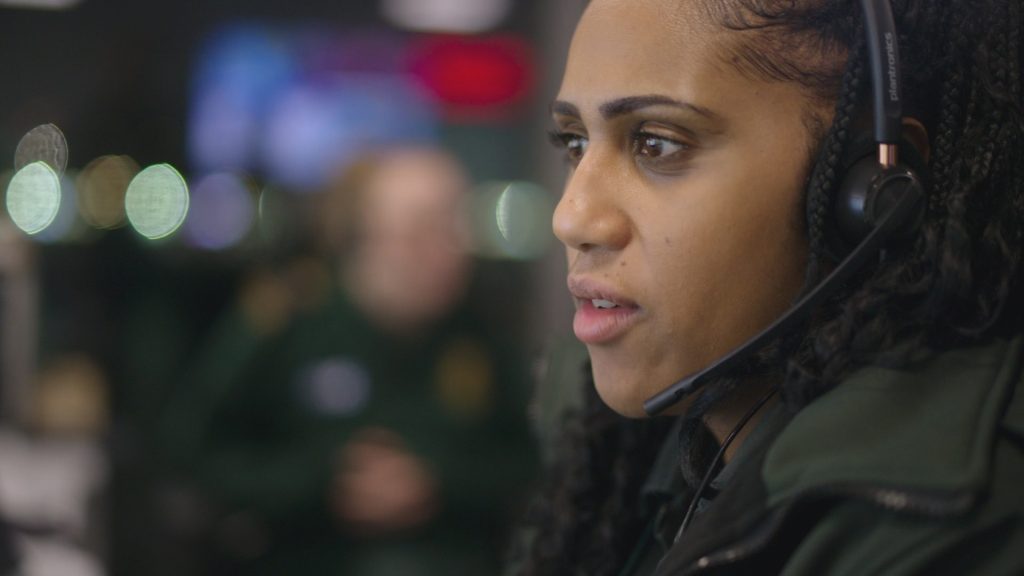Night shift pressures shine spotlight on staff’s strength in times of adversity and compassion of clinicians
The challenges faced by London Ambulance Service on a busy night shift are brought into sharp focus on last night’s BBC Ambulance (Thursday 14 November).
In the episode, the Service grapples with sustained high demand – answering a new 999 call every four seconds.
Staff showcase how they maintain their empathy and compassion for patients even under extreme pressure.
An especially touching moment is when Emergency Medical Technician Niamh and Paramedic Izzy are called to provide life-saving care to a 62-year-old man who is having a seizure after a fall.
The crewmates administer drugs in an attempt to stop him fitting, but it does not have an effect so senior clinicians from London’s Air Ambulance are called in to help using their additional medicine and training..
Niamh and Izzy balance the patient’s medical needs while also comforting his partner.

Later in the episode, Clinical Team Manager Gary reflects on how his desire to help others attracted him to the Service and how in his role now he is able to offer support to not only the patients, but colleagues too.
Throughout the episode, Gary steps in as and when needed – offering help to an Advanced Paramedic when he is resetting a patient’s badly broken ankle and then later offering guidance to crews when a heavy goods vehicle (HGV) driver hurt in a road traffic collision. He also reflects on how being one of the first responders at the scene after the 2017 London Bridge terrorist attack has informed his judgement and driven his desire to support his colleagues and ensure good quality care.
He said: “This job is often unpredictable. The scale and complexity of the calls can vary drastically.”
Gary added: “We all have a vulnerable side and this job has the ability to expose that. There’s been many moments when I’ve questioned why I am doing this job and then I remember why I am here. I became a paramedic to help people. If I can use my experience to support colleagues then that makes it worth it.”
While answering a call to a serious road traffic collision involving an HGV and taxi, he reflects on being first on the scene after the 2017 London Bridge terror attack.
Speaking about that unforgettable day, Gary said:
“While on my way to a big incident, there’s a lot going through my mind. Often we are going into the unknown. A situation can change in a heartbeat. You never know what is coming and you have to be prepared for anything. In 2017, I attended the London Bridge terrorist attack and had to deal with the early stages of that attack with minimal backup.
He added: “Once you’ve been to an incident like London Bridge you reflect a bit more on what scene any one of us could possibly end up at. Sometimes we all need a bit of extra help. I’m sent to provide that support to ensure the ambulance crews are able to provide good quality care and I’m there for my colleagues.

Meanwhile, paramedic Rob has to use empathy and listening skills to understand the needs of a patient in a mental health crisis.
The patient has bipolar disorder and shares his story with Rob, in a touching show of empathy and kindness to put the patient at ease with the decision to take him to hospital.
Reflecting on the importance of taking time to listen and communicate effectively with patients, Rob says: “We’re all different. It’s about trying to find any avenue to actually connect with that patient, to be like, you can trust me, let’s go.”
Later in the episode, Rob and his crewmate paramedic Nikita are dispatched to a 37-year-old woman with Rett Syndrome – a rare genetic disorder which impedes brain development.
They are touched to hear about the positive impact the Service has had upon her life and learn more about the challenging condition from her inspiring mother.
Director of Ambulance Services Darren Farmer said: “Kindness and empathy are at the core of everything we do. I’m proud to see amazing colleagues showcasing these incredible attributes in this BBC Ambulance episode. Despite massive pressures on all staff, our teams have to ensure everyone feels heard, respected and is treated with utmost compassion.
“Viewers can see the massive challenges of the night shift – but our frontline clinicians do not allow that to phase them and instead showcase their humanity and selfless commitment to caring for Londoners. This episode in particular really shows how valuable each and every individual who works for the Service really is.”
The BAFTA award-winning show aired on BBC One last night (14 November) and is available to watch on BBC iPlayer.
For more information about career opportunities at London Ambulance Service visit our careers page on our website.

Follow us on social media: